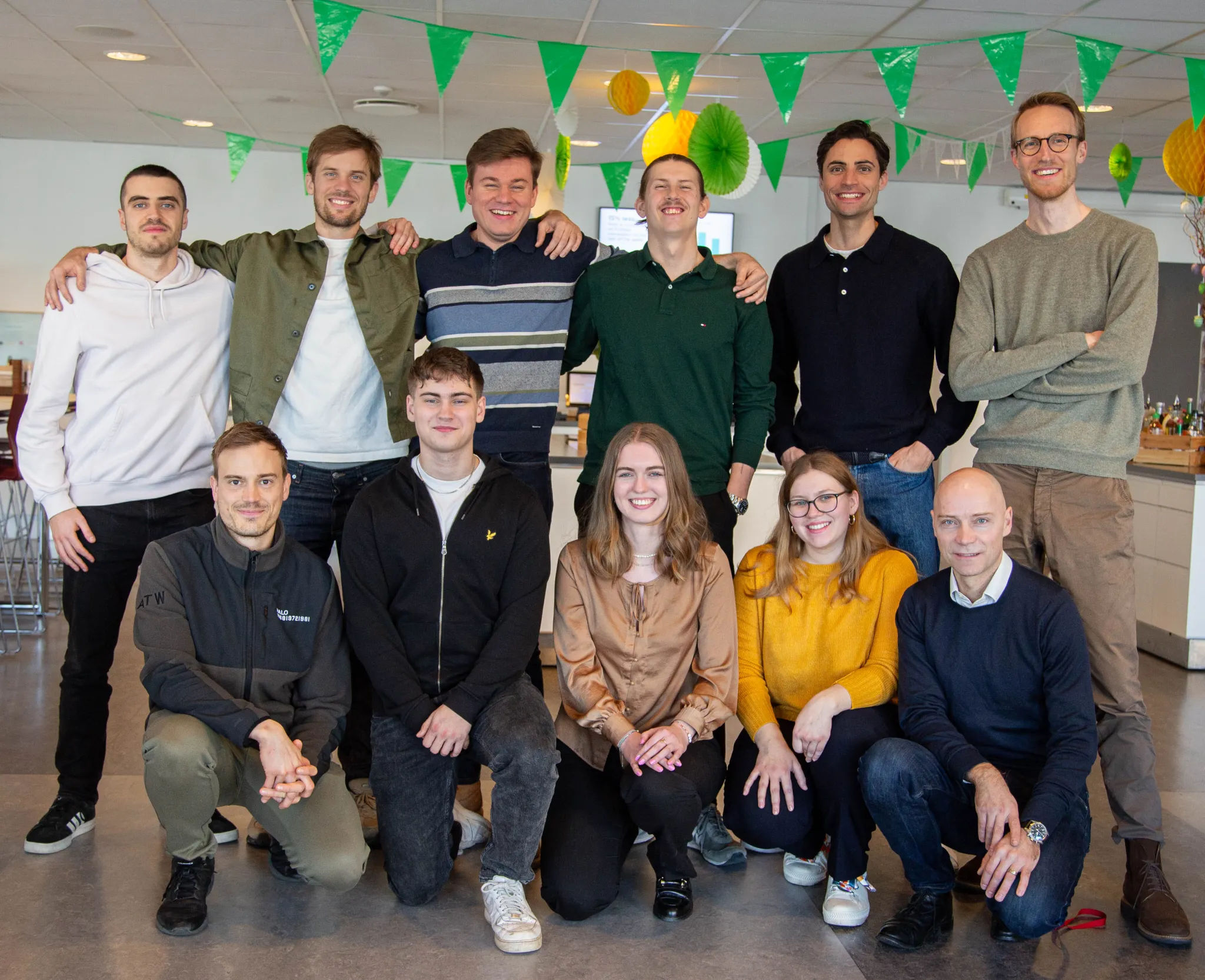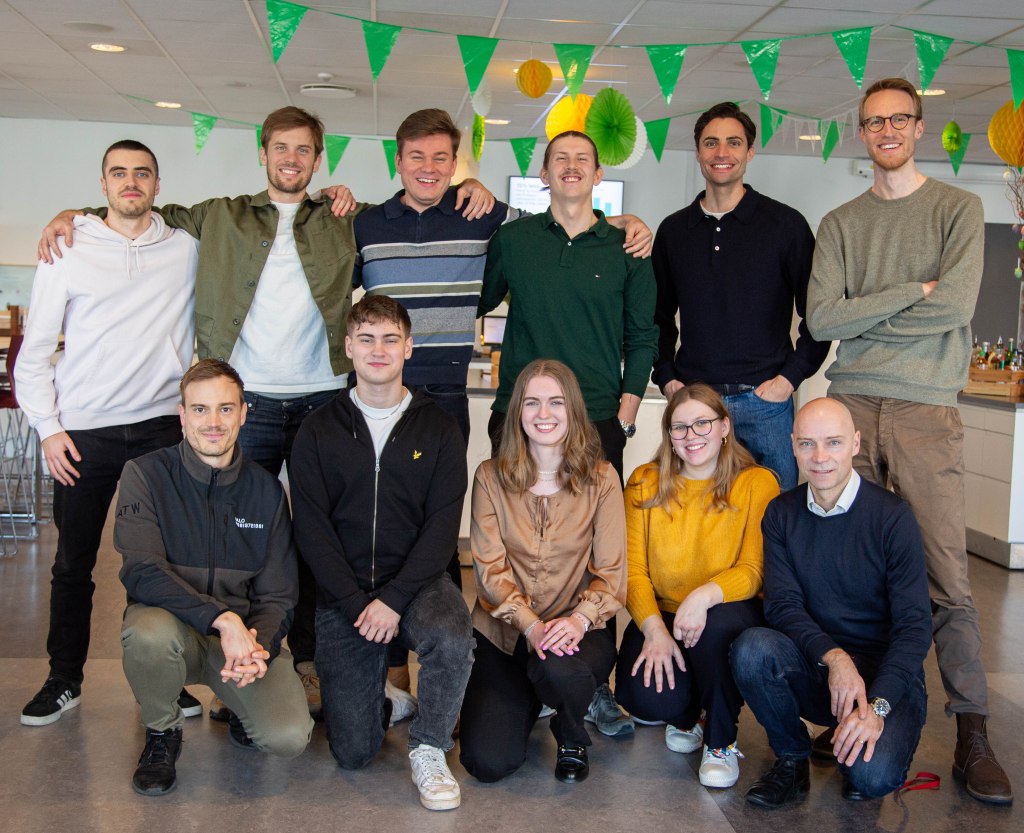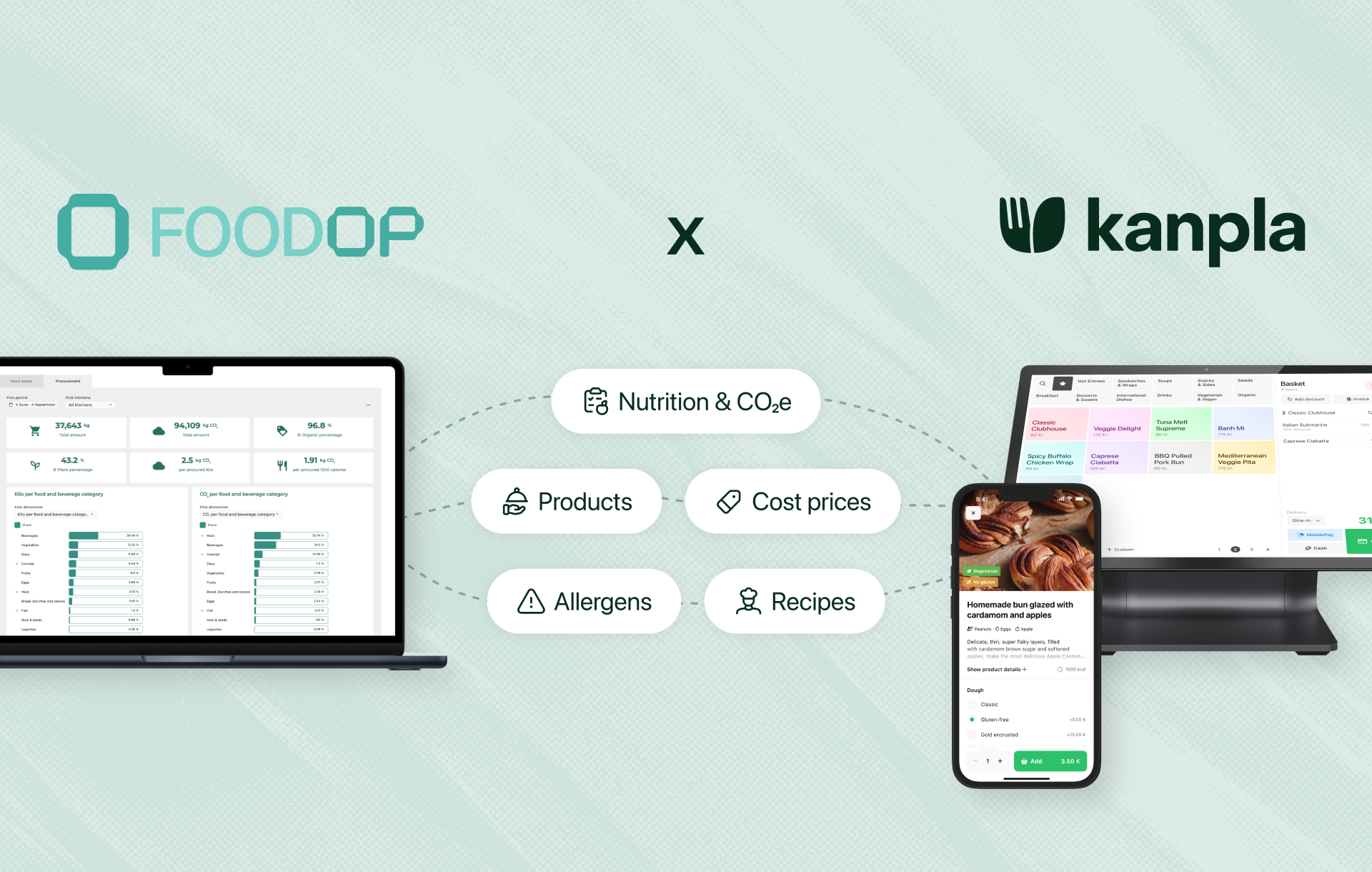The Footprint Firm Invests DKK 7 Million in FoodOp

Aims to Enter the Swedish Market and Reach 3,000 Kitchens

The burgeoning Danish foodtech company, FoodOp, is receiving a significant investment of millions from The Footprint Firm. The investment is primarily intended to capture customers in the Swedish market and achieve FoodOp’s growth target of 3,000 kitchens in its portfolio by the end of 2027.
FoodOp has already reduced over 1 million kilograms of CO2 for clients in canteens, hotels, and public kitchens. This reduction has been achieved through significant reductions in food waste and assistance in sourcing more sustainable ingredients.
“This investment enables us to reduce the CO2 footprint and administrative workload in both Denmark and abroad,” says FoodOp CEO and co-founder, Nichlas Saul.
Shared Focus on the 'E' in ESG
A new “superweapon” is making strides in the fight against carbon-intensive ingredients and food waste in canteens, hotels, and public kitchens. This superweapon is the Danish platform, FoodOp, invented by co-founders Nichlas Saul and Christian Borkenfelt in 2021. The co-founders left their positions at McKinsey & Co and Strategy& respectively to realize their startup dream.
FoodOp’s data platform provides canteens, hotels, and other professional kitchens with an exceptionally efficient way to manage procurement and menu planning, thereby avoiding food waste and the purchase of carbon-intensive ingredients. This leads to significant financial and environmental savings.
Many large canteens, hotels, and conference centers have recognized the value of FoodOp’s platform. Now, The Footprint Firm, led by Christian Sparrevohn among others, is investing millions over the coming years to expand the Danish platform internationally. Christian Sparrevohn, in addition to his role at The Footprint Firm, also serves as chairman of the Council for Green Transition.
The common goal is for the data platform to be implemented in 3,000 professional kitchens by the end of 2027, resulting in a total annual reduction of 450,000 tons of CO2 for FoodOp’s clients. Christian Sparrevohn says:
“The green transition will require us to reduce CO2 emissions from our production and consumption of food. A significant portion of that responsibility demands a change in behavior from us as consumers, but we need help.
With FoodOp’s solution, it becomes much easier for the chefs who prepare lunch at our workplaces to make the right decisions and serve healthy, climate-friendly, and delicious meals to those of us needing to adopt new habits. At the same time, companies and public workplaces gain the tools needed to measure and reduce emissions from their cafeteria operations. We are very impressed by FoodOp’s product and excited about the team’s abilities, experience, and drive. We are proud to be part of FoodOp’s important journey.”
More and more prominent customers
FoodOp has reduced its customers’ CO2 footprint by over 1 million kilograms annually; food waste has been reduced by 220 tons. In addition, assistance and inspiration to support more sustainable menus have led to a CO2 reduction of 830 tons. This has been achieved, for example, by increasing the proportion of green proteins such as legumes in the kitchens.
Many kitchens eventually achieve savings of hundreds of thousands of kroner, far exceeding the investment in FoodOp. On average, customers recoup their investment in FoodOp’s platform in just six months. Co-founder Nichlas Saul says:
“At Alfa Laval’s Danish offices, we have reduced the CO2 footprint by 23%, equivalent to 38 tons of CO2 per year, and saved hundreds of thousands of kroner. This reduction is due in part to a 45% reduction in food waste, equivalent to 16 tons less CO2 annually, and a 15% reduction in CO2 from menus, equivalent to 22 tons less CO2 from menus per year. The majority of the environmental impact comes from the increased popularity of green dishes.
We hope to have the opportunity to replicate this success at Alfa Laval’s Swedish offices, where they are headquartered. The company employs 17,000 people globally.
Several major hotels and conference centers have also adopted our platform, including Guldsmeden Hotels, who chose us because they want to lead the sustainability agenda. We can provide all the data that makes it easy for environmentally conscious companies to choose a hotel or conference center.
A number of large canteen operators have also joined the platform. For example, we are extremely proud that Cheval Blanc has chosen FoodOp because they too are a company leading the sustainability agenda in their field. In canteens, we can provide and convey all the requested data, such as information on allergens, CO2 footprint, nutrition, and organic %, and the platform makes it easy to find inspiration for green meals.”
Figures show that annual food waste in Denmark amounts to 814,000 tons, equivalent to approximately 2,000 tons of CO2.
FoodOp has 10 employees and expects to hire three more in connection with further expansion in Denmark and the launch in Sweden.
Best regards
FoodOp

Explore more blog posts
We are here to help
Reach out to our team if you want to explore if FoodOp is the right fit.

.webp)

.jpg)
.webp)